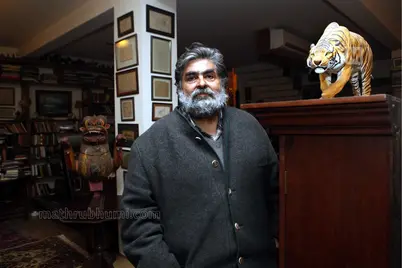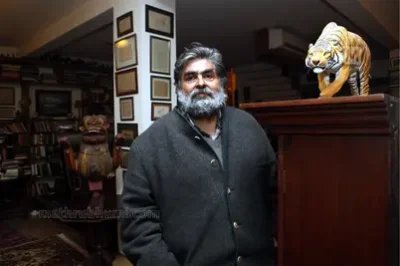
A Passionate Advocate for Tigers
Valmik Thapar, one of India’s most esteemed wildlife conservationists, passed away on May 31, 2025, in New Delhi at the age of 73. Renowned for his unwavering dedication to tiger preservation, Thapar’s life was a testament to his deep connection with India’s natural heritage. Over several decades, he became a leading voice in wildlife conservation, blending his expertise in natural history with a profound commitment to environmental advocacy.
Founding the Ranthambhore Foundation
In 1987, Thapar established the Ranthambhore Foundation, aiming to protect the tigers of Rajasthan’s Ranthambhore Tiger Reserve. His approach was holistic, integrating community welfare with conservation efforts. The foundation initiated various programs, including women’s cooperatives, literacy campaigns, and health initiatives, to reduce human impact on the park’s ecosystem. Thapar’s vision was to foster coexistence between local communities and wildlife, ensuring sustainable development alongside conservation.
Contributions to Project Tiger
Thapar’s expertise and dedication led to his involvement in national conservation strategies. In 1992, amidst a poaching crisis, he was inducted into the steering committee of Project Tiger, a government initiative launched in 1972 to protect tigers across India. His insights and critiques, particularly regarding the management of forest bureaucracy and poaching control, were instrumental in shaping the project’s direction and highlighting areas needing reform.
Author and Documentarian
Beyond his on-ground efforts, Thapar was a prolific writer and filmmaker. He authored 14 books and produced numerous documentaries, many of which aired on international platforms like BBC, Discovery, and National Geographic. His works, such as “The Land of the Tiger” and “Tiger: The Ultimate Guide,” provided in-depth insights into tiger behaviour and conservation challenges. His documentary “My Tiger Family” showcased his close relationship with a tigress named Machli, bringing global attention to the plight of India’s tigers.
Innovative Conservation Practices
Thapar’s conservation philosophy extended beyond traditional methods. He introduced innovative practices, such as promoting biogas production from cattle dung, to reduce deforestation caused by firewood collection. His initiatives also included afforestation projects and village relocation programs to alleviate pressure on forest resources. These efforts reflected his belief in integrating environmental conservation with community development.
Legacy and Recognition
Thapar’s contributions earned him widespread recognition in the conservation community. His work not only influenced policy but also inspired a generation of wildlife enthusiasts and activists. The Ranthambhore Foundation, which he led for over a decade, continues to be a model for community-based conservation efforts. His collaborative projects, like the “50 Iconic Years of Ranthambhore” book, celebrate the rich biodiversity of the region and his enduring legacy.
Conclusion
Valmik Thapar’s passing marks the end of an era in India’s wildlife conservation history. His life’s work serves as a powerful reminder of the importance of preserving natural habitats and fostering harmonious relationships between humans and wildlife. As we reflect on his legacy, Thapar’s commitment to tiger conservation remains an enduring inspiration for future generations dedicated to safeguarding India’s rich biodiversity.









































Leave a Reply